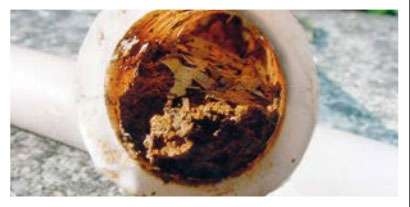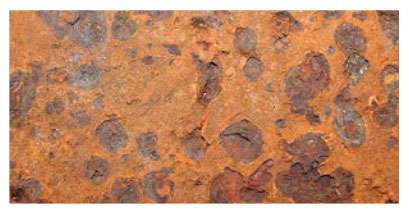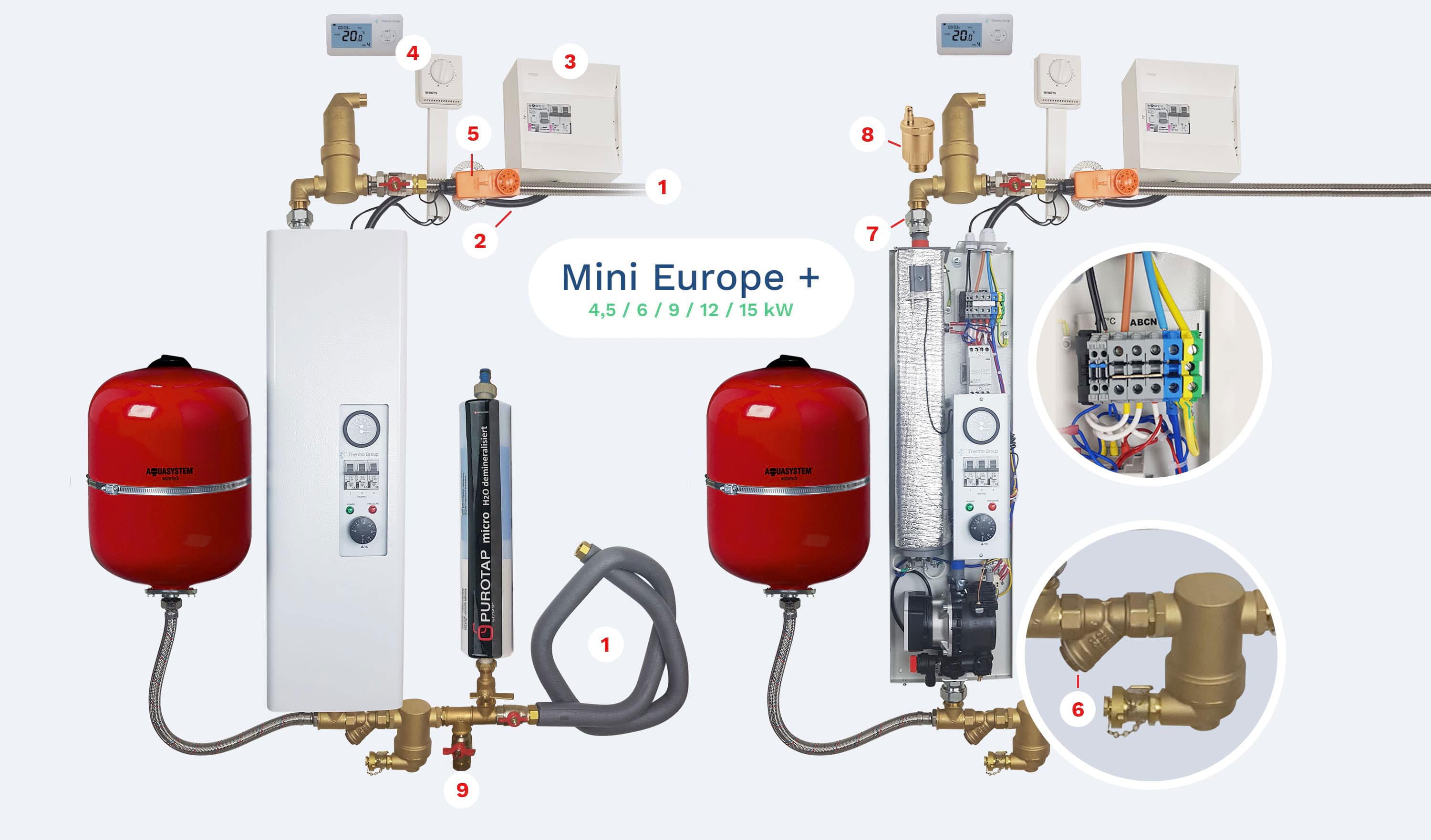Our experience based on thousands of customers across Europe shows that 90% of problems associated with electric boiler components are due to inappropriate conditions of use.
Two key factors influence these issues.
_ The first is the quality of the water used for heat transfer. It is interesting to note that our customers located in regions with less hard water experience fewer problems than those with harder water.
_ Practice has shown that, even with slightly hard water, lime deposits are likely to damage modern appliances. With a hardness of 15°fH which is the limit for considering hard water, this means that there are 150 g of limestone for one cubic meter of water.
Knowing that a 1 mm scale deposit on the electrical heaters reduces their efficiency by 10%.
So imagine the impact if this layer thickens: you will heat limestone as a priority.
This reduction in efficiency requires more energy to compensate for the loss in efficiency. If your heating water is not perfectly clear after several years, it is because it has deteriorated. Since central heating is a closed loop circuit, there should be no need to replace water if it remains stable.
The second factor is the presence of dissolved oxygen resulting from the rise in temperature of the electrical resistances.
In addition to the flow noise in radiators, air is the best insulator to prevent thermal circulation and air + water generate rust then magnetite
, a sludge which reduces the performance of circulators by up to 50%.


Then, the motors of these clogged circulators break down.
Radiator bleeding should therefore not exist in an optimal heating network because the air should be sufficiently extracted so that it does not get blocked in the high points.
Additionally, each additional degree in room temperature results in an increase in heating consumption of approximately 8%.
It is therefore essential to install a room thermostat to avoid unnecessary costs.
All these invisible losses without a thorough inspection of the installation translate into thousands of euros in long-term expenses, in addition to the hassle of replacing components. Investing in prevention is therefore a wise decision.
The solution to guaranteeing the longevity and performance of your central heating system is compliance with the VDI2035 standard.
The VDI2035 standard
VDI stands for “Verein Deutscher Ingenieure”, the name of the group of specialists based in Dusseldörf who issued these recommendations for the German state. The first version of document number 2035 was published in 1979, with a final update in 2021.
The accessories necessary to bring your central heating into compliance are:
● A complete filling with demineralized water with Purotap Micro, characterized by a pH of approximately 8.2, a hardness less than 1°f and a conductivity less than 100 µS/cm, in order to prevent corrosion linked to electrical conductivity.
● A microbubble separator at the boiler outlet to extract dissolved oxygen (not to be confused with the automatic purger to be installed at a high point, which is used to purge air from the filling and does not operate during flow circulation) .
● A sieve filter and a sludge pot with a boiler return magnet to remove all impurities and ferromagnetic particles.
● Dielectric connections for cathodic protection, to avoid galvanic corrosion between the different metals in the installation, which could lead to the formation of a layer on the resistors.
● Real-time monitoring of conductivity with Purotap – i Control, to verify that it remains below 200 µS/cm.
All fittings required to connect these accessories to each other and to the electric boiler are also included.
The use of glycol and chemicals for cleaning the installation is not possible because they can cause the formation of a slight deposit on the electrical resistances, causing cavitation.
Cavitation is the formation of air pockets that adhere to the stainless steel, insulating it from water and generating hot spots that can damage the heating wire contained in the resistor tubes until they cut. . It is therefore preferable to set the boiler to a temperature of 10°C to keep the home frost-free.
Finally, the standards for the use of water heating systems are not uniform in Europe.
Austria and Switzerland are at the forefront in ensuring optimal energy efficiency, in particular with the obligation to respect these recommendations and independent readings of values each year.
For us, they are integrated into our “Low-Tech” philosophy as common sense that we simply want to share with you.

